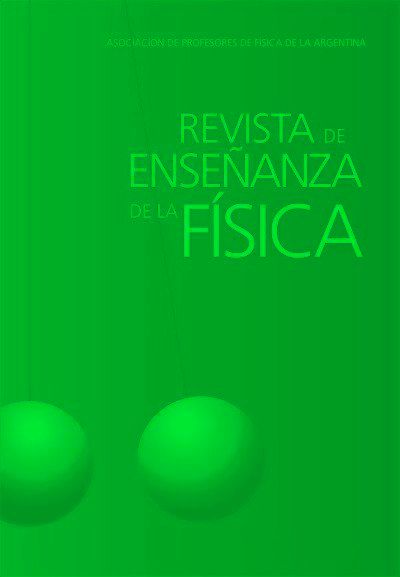A study on language as a facilitator of physics classes for visually impaired students
DOI:
https://doi.org/10.55767/2451.6007.v33.n2.35221Keywords:
Physics Teaching, Language, Visual impairmentAbstract
Our objective in this study was to research how language can facilitate the learning of these students. We refer to the search for some
communication alternatives that have the purpose of giving conditions to a total and effective participation of the visually impaired
student, of which the following stand out: audio description, exploration of the remaining senses, as well as the use of songs and poetry
with themes focused on Physics, Chemistry and Biology, allowing the implementation of trans and interdisciplinary interventions involving
Social Sciences, Socio-Environmental Education or any other area of knowledge. In order to corroborate this teaching strategy,
we look for some references, such as Vygotsky and Bakhtin, that emphasize the importance of expanding, through language, the functional
skills of these students.
References
rasil. (2004). Decreto n.5.296, de 2 de dezembro de 2004. Regulamenta as Leis n.10.04, de 8 de dezembro de 2000, que dá prioridade de atendimento às pessoas que especifica, e n.10.09, de 19 de dezembro de 2000, que estabelece normas gerais e critérios básicos para a promoção da acessibilidade das pessoas portadoras de deficiência ou com mobilidade reduzida, e dá outras providências. Diário Oficial da União. Brasília.
Brasil. (2018). Ministério da Educação. Base Nacional Comum Curricular. Brasília.
Bakhtin, M. (2006). Marxismo e Filosofia da Linguagem. São Paulo: Hucitec.
Bakhtin, M. (2011). Estética da criação verbal. São Paulo, SP: Martins Fontes.
Carvalho, A. M. P., Gil-Pérez, D. (2011). Formação de professores de Ciências: tendências e inovações. São Paulo: Cortez.
Carvalho, A. M. P., Sasseron, L. H. (2018). Ensino e aprendizagem de Física no Ensino Médio e a formação de professores. Estud. av., 32(94), 43-55. Disponível em: <http://www.scielo.br/scielo.php?script=sci_arttext&pid=S0103-40142018000300043&lng=en&nrm=iso>. Acesso em: 06 mai. 2021.
Lira, M. C. F., & Schlindwein, L. M. (2008). A pessoa cega e a inclusão: um olhar a partir da psicologia histórico-cultural. Caderno Cedes, 28(75), 171-190.
Rennó, C. (2003). Gilberto Gil: todas as letras. São Paulo: Companhia das Letras.
Saramago, J. (1981). Os Poemas Possíveis. Lisboa: Editorial Caminho.
Vygotsky, L. S. (2001). Psicologia da arte. 2ª ed. São Paulo: Martins Fontes.
Vygotsky, L. S. (2003). Pensamento e linguagem. 3ª ed. São Paulo: Martins Fontes.
Vygotsky, L. S. (2004). O problema da consciência. In L. S. Vygotsky. Teoria e método em psicologia. 3ª ed. São Paulo: Martins Fontes, pp.171-189.
Vygotsky, L. S. (2007). A formação social da mente: o desenvolvimento dos processos psicológicos superiores. 7ª ed. São Paulo: Martins Fontes.
Vygotsky, L. S. (1993). The Collected Works of L.S. Vygotsky: The Fundamentals of Defectology (Abnormal Psychology and Learning Disabilities) (R. W. Rieber & A. S. Carton, Eds.). Springer US. https://doi.org/10.1007/978-1-4615-2806-7
Zanetic, J. (2005). Física e cultura. Ciência e Cultura. 57(3), 21-24.
Zanetic, J. (2006). Física e Arte: uma ponte entre duas culturas. Pro-posições, 17(1), 39-57.
Published
How to Cite
Issue
Section
License
Copyright (c) 2021 Sofia Hallais, Artur Batista Vilar, Maria da Conceição Barbosa-Lima

This work is licensed under a Creative Commons Attribution-NonCommercial-NoDerivatives 4.0 International License.
Aquellos autores/as que tengan publicaciones con esta revista, aceptan los términos siguientes:Los autores/as conservarán sus derechos de copiar y redistribuir el material, bajo los términos estipulados en la Licencia de reconocimiento, no comercial, sin obras derivadas de Creative Commons que permite a terceros compartir la obra bajo las siguientes condiciones:
- Reconocimiento — Debe reconocer adecuadamente la autoría, proporcionar un enlace a la licencia e indicar si se han realizado cambios. Puede hacerlo de cualquier manera razonable, pero no de una manera que sugiera que tiene el apoyo del licenciador o lo recibe por el uso que hace.
- NoComercial — No puede utilizar el material para una finalidad comercial.
- SinObraDerivada — Si remezcla, transforma o crea a partir del material, no puede difundir el material modificado.
- Los autores/as podrán adoptar otros acuerdos de licencia no exclusiva de distribución de la versión de la obra publicada (p. ej.: depositarla en un archivo telemático institucional o publicarla en un volumen monográfico) siempre que se indique la publicación inicial en esta revista.
- Se permite y recomienda a los autores/as difundir su obra a través de Internet (p. ej.: en archivos telemáticos institucionales o en su página web) antes y durante el proceso de envío, lo cual puede producir intercambios interesantes y aumentar las citas de la obra publicada. (Véase El efecto del acceso abierto).














